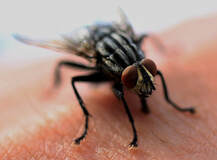 When it comes to pest control, a sustainable and environmentally friendly approach is gaining increasing recognition and popularity. Integrated Pest Management (IPM) offers a comprehensive strategy that focuses on long-term pest prevention and control, while minimizing the use of harmful chemicals. In this article, we will explore the principles of IPM and its benefits, highlighting why it is an effective and responsible choice for managing pests. Understanding Integrated Pest Management (IPM) Integrated Pest Management is a holistic approach that combines various pest control techniques to achieve effective and sustainable results. Instead of relying solely on chemical treatments, IPM emphasizes the integration of multiple strategies, including pest identification, monitoring, prevention, and non-chemical control methods. The goal is to minimize the use of pesticides while still effectively managing pest populations. Pest Identification and Monitoring A crucial step in IPM is identifying the specific pests present and understanding their behavior and life cycle. By closely monitoring pest populations, it becomes possible to determine the most appropriate time and method for control measures. This knowledge allows pest control professionals to employ targeted strategies, reducing the need for widespread pesticide application. Prevention and Habitat Modification IPM focuses on addressing the underlying factors that attract pests to an environment. Through habitat modification, such as sealing entry points, improving sanitation practices, and eliminating potential food and water sources, the conditions that support pest infestations can be minimized. By proactively preventing pest access and making the environment less favorable to them, the reliance on chemical treatments can be significantly reduced. Non-Chemical Control Methods IPM emphasizes the use of non-chemical control methods whenever possible. These methods include physical barriers, traps, biological controls (such as introducing natural predators), and mechanical control techniques. By utilizing these alternatives, pest populations can be managed effectively without resorting to heavy pesticide use, minimizing the impact on the environment and non-target organisms. Targeted Pesticide Application While pesticides are used as a last resort in IPM, their judicious and targeted application is crucial for effective pest control. IPM promotes the use of low-toxicity, eco-friendly pesticides and employs them only when necessary and in accordance with specific guidelines. This approach reduces the overall pesticide load, minimizing risks to human health and the environment. Integrated Pest Management offers a sustainable and responsible approach to pest control. By combining pest identification, monitoring, prevention, and non-chemical control methods, IPM minimizes the reliance on harmful pesticides and focuses on long-term pest management. This approach not only effectively controls pests but also promotes environmental protection and reduces risks to human health. If you are seeking an eco-friendly and effective pest control solution, consider working with a professional pest control service that embraces the principles of Integrated Pest Management. Together, we can create a pest-free environment while prioritizing sustainability and responsible pest management. Comments are closed.
|
AuthorProfessional Termite and Pest Control in Jersey City, NJ is now in it's second generation of ownership. With more than fifty years of experience, and a reputation of going above and beyond for our clients, we have become known locally as the "go to exterminator" who can solve really tough pest infestations. Archives
May 2024
Categories
All
|
- Home
-
About
- FAQs
- Testimonials
- Careers
-
Service Area
>
- New Jersey
- Hudson County >
- Essex County >
- Passaic County >
-
Bergen County
>
- Hackensack
- Paramus
- Ridgewood
- Englewood
- Fort Lee
- Teaneck
- Mahwah
- Fair Lawn
- Westwood
- Bergenfield
- Ramsey
- Tenafly
- Edgewater
- Montvale
- Washington Township
- Wyckoff
- Closter
- Rutherford
- Glen Rock
- Lodi
- Oradell
- Saddle Brook
- Lyndhurst
- Waldwick
- Cliffside Park
- Dumont
- Garfield
- River Edge
- Franklin Lakes
- River Vale
- Maywood
- Leonia
- Teterboro
- Palisades Park
- Ridgefield Park
- Park Ridge
- Hasbrouck Heights
- New Milford
- Oakland
- Allendale
- Midland Park
- Cresskill
- Hillsdale
- Woodcliff Lake
- Old Tappan
- Emerson
- East Rutherford
- Saddle River
- Ridgefield
- Ho-Ho-Kus
- Little Ferry
- Alpine
- Bogota
- Carlstadt
- Demarest
- Elmwood Park
- Englewood Cliffs
- Fairview
- Harrington Park
- Haworth
- Moonachie
- North Arlington
- Northvale
- Norwood
- Rochelle Park
- Rockleigh
- South Hackensack
- Upper Saddle River
- Wallington
- Wood-Ridge
- Union County >
- Middlesex County >
-
Somerset County
>
- Franklin Township
- Bridgewater Township
- Hillsborough Township
- Bernards Township
- Montgomery Township
- North Plainfield
- Warren Township
- Branchburg Township
- Somerville
- Bound Brook
- Manville
- Bedminster Township
- Bernardsville
- Green Brook Township
- Raritan
- Watchung
- South Bound Brook
- Peapack-Gladstone
- Far Hills
- Rocky Hill
- Millstone
- Services
-
Pest Info
- Blog
- Booking
- Contact

 RSS Feed
RSS Feed